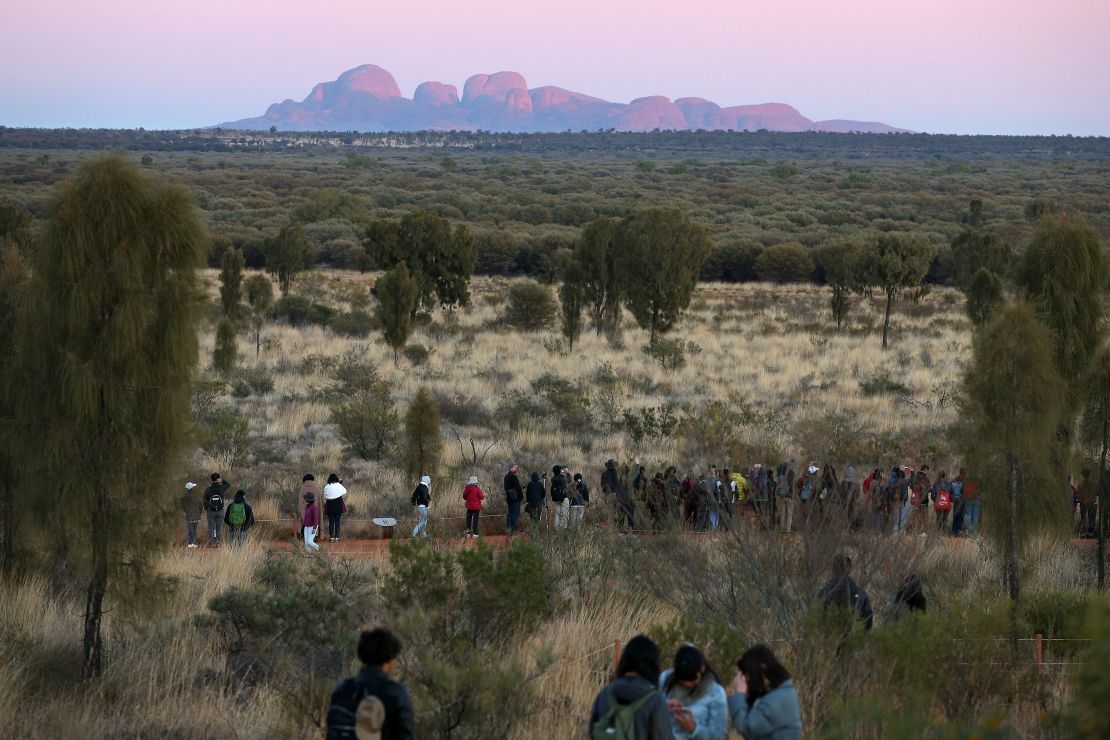Thousands of people are flocking to climb Uluru – Australia’s sacred giant monolith – before a ban comes into force at the end of October.
From October 26, visitors to Uluru, known for many years as Ayers Rock, will no longer be able to scale the monolith.
The impending ban has led to hundreds of people a day scrambling to climb it while they can.
“We know it’s certainly in the hundreds and probably nearer 1,000 (a day),” Uluru-Kata Tjuta National Park manager Mike Misso told CNN affiliate SBS.
According to the park’s most recent data, 300,000 people visited Uluru in 2015, of whom 16.2% climbed the rock – roughly 135 a day.
The spike in visitor numbers to the UNESCO World Heritage-listed rock has coincided with school holidays in Australia.
The Anangu Aboriginal people, the traditional owners of Uluru, have said their sacred site is being trashed by visitors who traipse up and down the rock, eroding its surface, dropping rubbish and polluting nearby waterholes.
Standing 1,142 feet high, Uluru is taller than the Eiffel Tower and London’s Shard. It is hot, slippery and often windy. At least 35 people have died since climbing started in the 1950s.

“Traditional owners are looking forward to the climb closure and what is actually a new direction for the park so one based on the natural and cultural values of the park and new tourist experiences,” Misso told SBS.
Tourism Central Australia CEO Stephen Schwer asked potential visitors to think about the purpose of their trip.
“If people are wanting to get involved in this mad rush to climb the rock, I would ask them to be circumspect and reconsider their motivations and maybe come next year,” Schwer told SBS.
“You don’t have to climb it to experience it.”
Anyone who ignores the signs and wanders into a restricted area faces fines of AUS$630 (US$430) and possible prosecution, according to existing legislation.
However, some visitors argue that the rock should remain open for Australians and tourists to enjoy.
Pilot Jim Mullett regularly flies to Uluru so members of his aviation club can climb the rock. He told CNN in September that he was “absolutely disgusted” by the impending ban.
He said: “I believe that everything in this country is for all Australians. I believe it should be open to all to appreciate, if they wish.”
CNN’s Hilary Whiteman contributed to this report.
